After 2 year-long process of negotiations and regular checks by the European Commission, which dragged out due to the COVID-19 pandemic, the EU accepted the Republic of Uzbekistan as the 9th beneficiary country of the special incentive arrangement for sustainable development and good governance, more known as GSP+. Under this new arrangement, the EU will start applying preferential treatment for products imported from Uzbekistan, granting full removal of tariffs on over 66% of tariff lines covering a very wide array of products including, for example, textiles and fisheries - writes Vita Kobiela.
There are strict criteria to fulfil to be granted a GSP+ scheme. Uzbekistan firstly had to meet economic criteria followed by political ones (the most difficult), which means, to ratify the 27 international conventions on human rights, climate, labour rights, etc. However, it is not enough to simply ratify them: all of them should be implemented and exercised, under the scrutiny of the European Commission and the EEAS.
This kind of development in their bilateral relations shows once again, that Uzbekistan is highly relevant for the EU and its growing importance as a reliable economic partner in the Central Asia region is being recognised. It is worth mentioning, that this importance has been acknowledged not only by the EU as a whole but also by its Member States.
For example, on the 30th of March 2021, Prime Minister of Hungary Victor Orban together with the President of the Republic of Uzbekistan Shavkat Mirziyoyev has signed a strategic partnership agreement. This document among many other intergovernmental agreements, opened a new window of opportunity and cooperation not only for their states but also for the two regions, which they respectively represent: Central-Eastern Europe and Central Asia. This strategic partnership can be perceived as a historical occasion, which opens a new road for Europe to Asia and vice versa.
Coming back to the GSP+, it is essential not to underestimate the overall meaning of this event, which is crucial for both the EU and Uzbekistan.
Of course, from the economic perspective, the GSP+ scheme gives more benefits to Uzbekistan. Around 74% of the total export to the EU has been already exported under the previous GSP programme. That being said, after being granted GSP+, this number is expected to double, which will boost exports and attract additional investments to the country. The GSP+ commitment to sustainable development further strengthens Uzbekistan's international position as a reliable and forward-looking economic partner.
The biggest advantage of the GSP+ for the EU is that it gives it the right to regularly monitor the implementations of the abovementioned 27 international conventions.
During the press conference in Tashkent, the Head of the EU Delegation to Uzbekistan, Ambassador Charlotte Adrian noted:
"The application of the GSP+ system of preferences to Uzbekistan is very timely, especially in the period when the country is recovering from the COVID-19 crisis. It is also a good incentive for the further implementation of reforms in Uzbekistan related to the implementation of 27 major international conventions on the environment, human and labour rights, as well as good governance».
Minister of Investment and Foreign Trade of the Republic of Uzbekistan Sardor Umurzakov at the same press conference said:
"The decision of the European Union to grant our Republic the status of a GSP+ beneficiary country was taken given the tangible results of the large-scale reforms and transformations carried out under the leadership and on the initiative of the President of the Republic of Uzbekistan, which is aimed at establishing a democratic state with strong institutions of governance and civil society".
Even more, after experiencing European Single Market and all benefits stemming from that, as well as the successfully implemented international conventions, Uzbekistani businesses, civil societies and authorities will be motivated to move forward in its relations with the EU, making its first steps towards the European path of development.
Concluding remarks
Since 2016, Uzbekistan has embarked upon a path of economic and political reforms. Many achievements highlight the political will to modernise and transform the country. This novel approach puts Uzbekistan positively in the spotlight in Central Asia, a region that is itself the object of renewed attention in the context of the EU Connectivity Strategy.
Upgrading Uzbekistan from the GSP to GSP+ marks the beginning of a new path in the EU-Uzbekistan partnership, based on the stable and long-term enhanced cooperation. The next step is to conclude Enhanced Partnership and Cooperation agreement, help Uzbekistan in its accession to WTO and keep building on this positive momentum to finally connect Europe with Asia, by reinvigorating its relations with Central Asian states.
Author: Vita Kobiela, a communications co-lead of Volt Belgium
The first pan-European political party and movement.

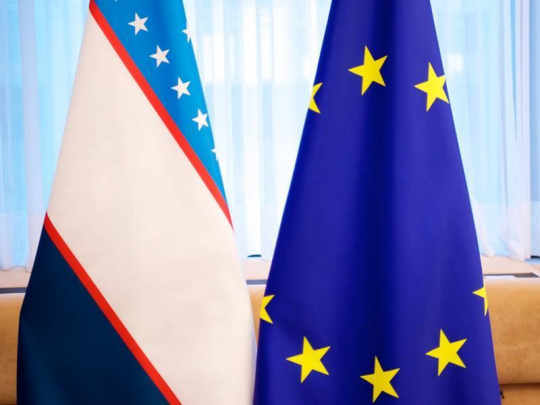
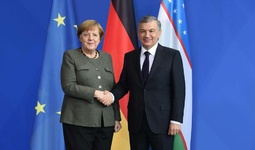
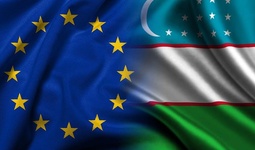


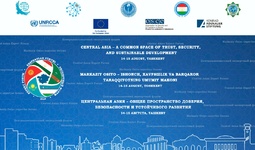
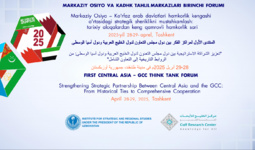













leave a comment